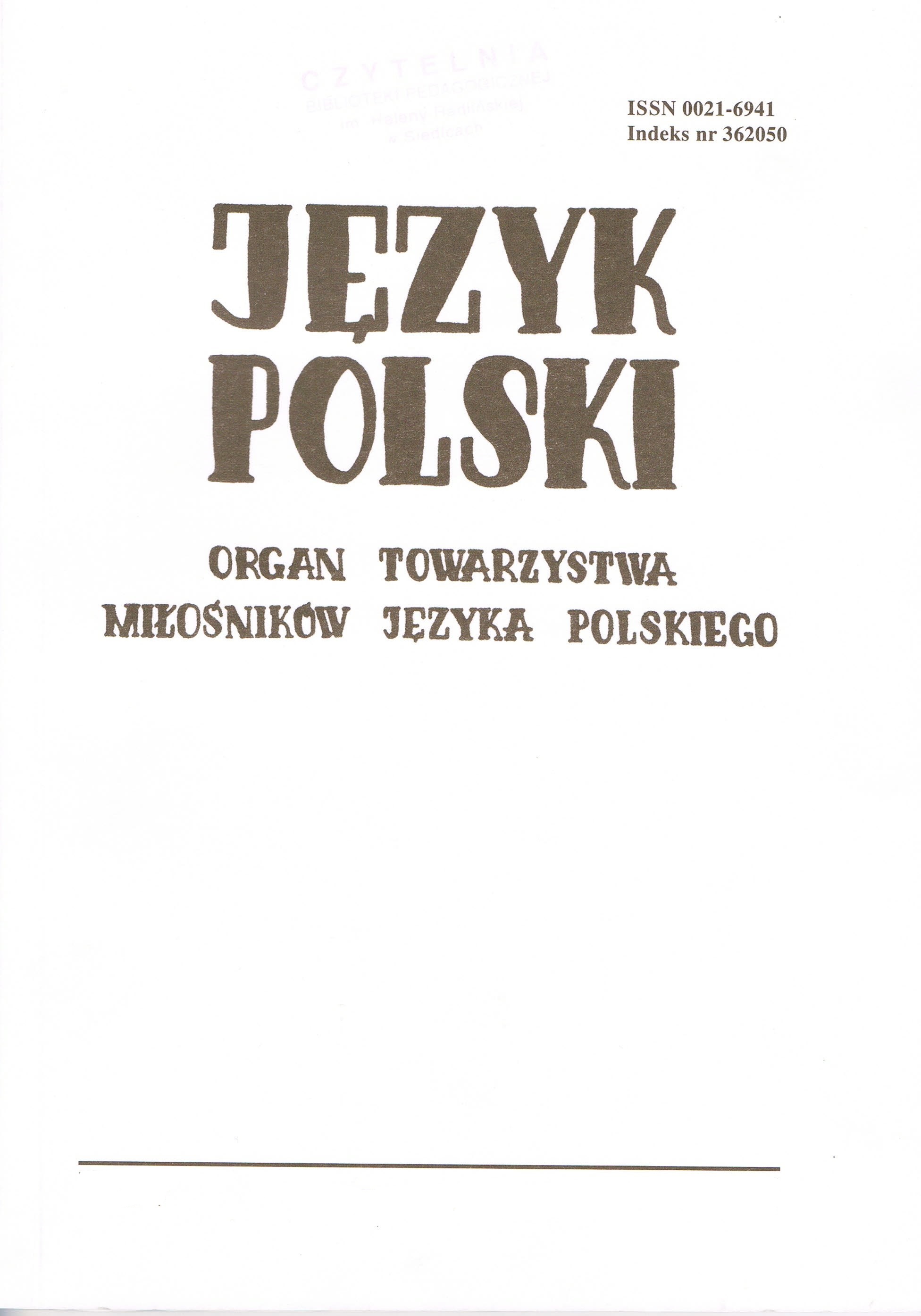O karierze literackiej leksemu "włościanin" w epoce oświecenia
On the literary career of the lexeme "włościanin" ('peasant') in the age of Enlightenment
Author(s): Krzysztof MaćkowiakSubject(s): Language and Literature Studies
Published by: Towarzystwo Miłośników Języka Polskiego
Keywords: Enlightenment; style; development of Polish lexical-semantic system
Summary/Abstract: The author tries to: 1) determine the frequency and scope of occurrence of the lexeme "włościanin" in the second half of the 18th century and the first decades of the following century; 2) explain the reasons for such repartition of the word in the given period. Moreover, the text includes information about other names of village inhabitants living in the state of economic and political dependence, which were in use in the age of Enlightenment. The word "włościanin" was a new element in the 18th century Polish. It gained full literary rights only after the period of partitions of Poland. The advancement of the lexeme took place to a large extent thanks to the practice of authors of utilitarian writings (official and journalistic). Its success was determined mainly by the texts of the Enlightenment reformers. The influence of this environment caused a rapid increase in the acceptance of the used language. This process also referred to the analyzed word. In the consciousness of Polish people at the turn of the 18th and 19th century, the word "włościanin" was a catalyst of progressive contents and positive emotions.
Journal: Język Polski
- Issue Year: 2014
- Issue No: 3
- Page Range: 228-238
- Page Count: 11
- Language: Polish

